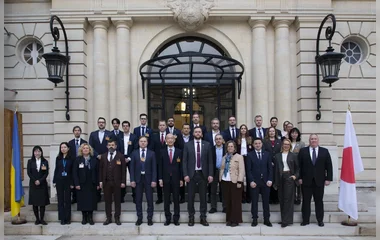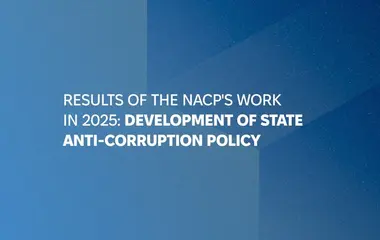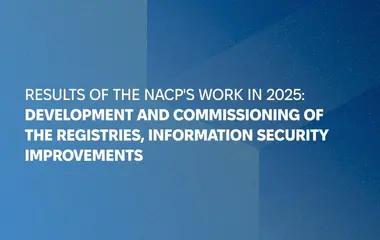In October 2025, the National Agency on Corruption Prevention (NACP) monitored 465 draft regulatory legal acts (RLAs). It conducted anti-corruption expertise of 15 draft RLAs, as a result of which 45 corruption risk factors were identified and 59 recommendations for their elimination were provided.
In particular, in the draft resolution of the Cabinet of Ministers of Ukraine “Certain issues of implementing an experimental project on providing capacity-building services to certain categories of persons who defended the independence, sovereignty, and territorial integrity of Ukraine and sustained injuries, wounds, or illnesses that resulted in limitations of their daily functioning,” the NACP identified a number of corruption risk factors:
- the introduction of a non-transparent mechanism for implementing the applicant’s right (the service provider of capacity building) to reimbursement of the cost of provided capacity-building services;
- the introduction of a corruption-prone procedure for inspecting the activities of service providers;
- the absence of clear regulation of the rights and obligations arising between the service provider and the service recipient, which may lead to biased decisions during the conclusion or termination of relevant contracts.
The NACP provided recommendations to the Ministry of Veterans Affairs — the developer of the draft act — to eliminate the identified corruption risks, and they were taken into account.
As a result of the anti-corruption expertise of the draft resolution of the Cabinet of Ministers of Ukraine “On the implementation of an experimental project on the creation of research centers of excellence,” the NACP identified corruption risk factors related to the lack of a transparent procedure for holding a competition to establish research centers of excellence based at higher education institutions, which creates risks of corrupt abuses. The developer of the draft, the Ministry of Education and Science of Ukraine, took into account the recommendations provided by the NACP.
The NACP also carried out anti-corruption expertise of the draft resolution of the Cabinet of Ministers of Ukraine “Certain issues of the development of special innovative technologies,” which proposed, in particular, to approve the Procedure for testing and research of special innovative technologies by the Innovation Development Fund during martial law (draft Procedure for testing and research). The purpose of this draft resolution included, among other things, the introduction of a mechanism for testing and researching special innovative technologies by the experimental units NEXT of the Innovation Development Fund and the regulation of the use of relevant budget funds.
As a result of the conducted anti-corruption expertise, the NACP identified corruption risk factors related to:
- the uncertainty of the procurement procedure for goods, works, and services in accordance with current regulatory legal acts by the Innovation Development Fund and the experimental units NEXT;
- the absence of an exhaustive list of cases for which the procurement of goods, works, and services is carried out, as well as the absence of a requirement to justify the request on the basis of which the procurement is made, according to the meaning of the draft Procedure for testing and research;
- the use of evaluative legal constructions. The existence of these factors creates prerequisites for committing corruption offenses or offenses related to corruption.
The Ministry of Digital Transformation of Ukraine took into account the NACP’s recommendations for eliminating the identified corruption risk factors, and the mentioned draft resolution was approved by the Cabinet of Ministers of Ukraine.
In addition, the NACP conducted anti-corruption expertise of the draft resolution of the Cabinet of Ministers of Ukraine “Issues of the Public Oversight Council under the National Agency of Ukraine for Detection, Search and Management of Assets Derived from Corruption and Other Crimes.” The document aims to form the Public Oversight Council under ARMA. During the expertise, the NACP identified a corruption risk factor — an unclear definition of powers and responsibilities, which could create risks of abuse during the approval of the Council’s composition and its activities.
The NACP provided the developer with recommendations to eliminate such risks: to align the draft’s provisions with the Law on ARMA, specify the deadlines for the approval and publication of the Council’s composition, and establish the term of office of its members. ARMA fully took into account the NACP’s recommendations in the revised draft resolution. This will ensure transparency and legality in the procedure for forming the Public Oversight Council.









